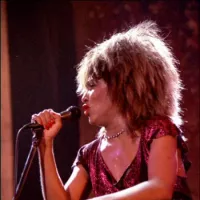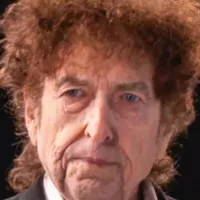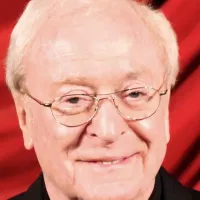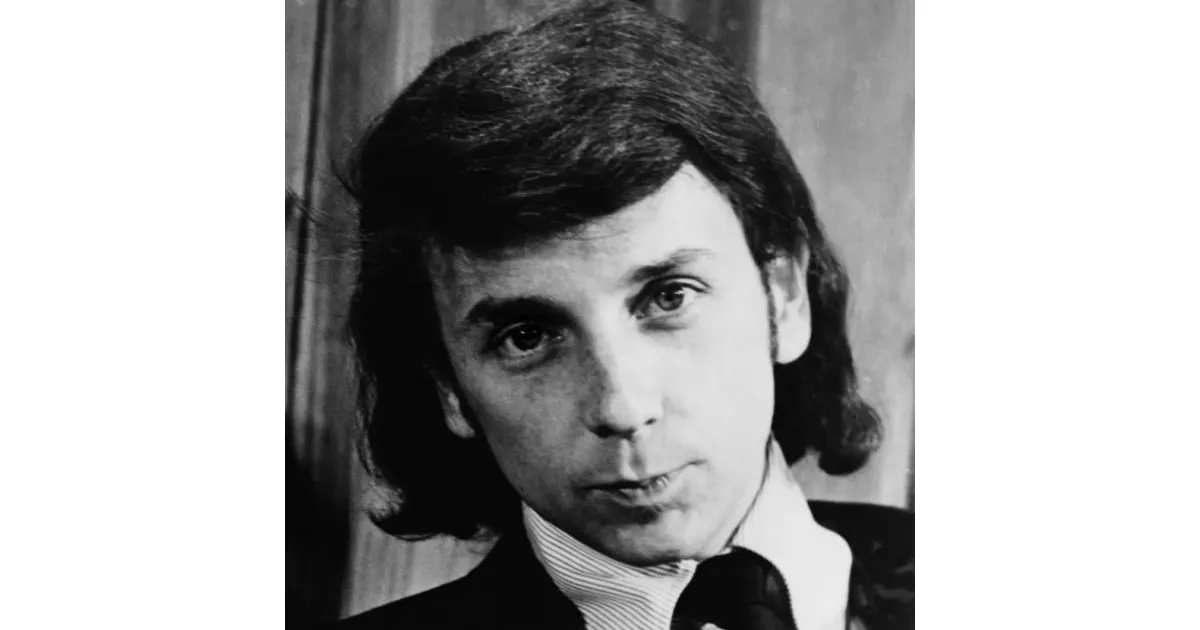Harvey Phillip Spector was an American record producer and songwriter who revolutionized pop music in the 1960s with his innovative "Wall of Sound" production technique. This method, characterized by its dense, orchestral layers of sound, influenced countless artists and solidified Spector's place as a music legend. His successful career was overshadowed later in life by his two trials and subsequent conviction for murder in the 2000s.
1903: Birth of Phil Spector's Father
Phil Spector's father, Benjamin Spector, was born in 1903.
1911: Birth of Phil Spector's Mother
Bertha Spector, Phil Spector's mother, was born in France to Russian migrants in 1911.
1913: Immigration of Phil Spector's Father to America
Benjamin Spector, originally named Baruch, immigrated to America with his parents in 1913 at the age of 10.
December 26, 1939: Birth of Phil Spector
Phil Spector was born in the Bronx, New York City on December 26, 1939.
April 1949: Suicide of Phil Spector's Father
Phil Spector's father died by suicide in April 1949, deeply in debt.
1949: Death of Phil Spector's Father
Benjamin Spector, Phil Spector's father, died in 1949.
1955: Attending Fairfax High School
Phil Spector attended Fairfax High School in 1955 and performed "Rock Island Line" at a talent show.
December 1, 1958: "To Know Him Is to Love Him" Hits Number One
The Teddy Bears' song "To Know Him Is to Love Him," written by Phil Spector and inspired by his father's tombstone inscription, reached number one on the Billboard Hot 100 chart on December 1, 1958.
1958: Meeting Stan Ross and Recording "Don't You Worry My Little Pet"
In 1958, Phil Spector met record producer Stan Ross, who mentored him. The Teddy Bears recorded "Don't You Worry My Little Pet" and signed a recording deal with Era Records.
1958: Phil Spector's Early Career
Phil Spector began his music career in 1958 as a founding member of The Teddy Bears. He wrote their hit song "To Know Him Is to Love Him".
1959: Disbanding of The Teddy Bears
The Teddy Bears disbanded in 1959.
1960: Founding of Philles Records
In 1960, Phil Spector co-founded Philles Records, becoming the youngest-ever U.S. label owner at the time. He gained recognition as "The First Tycoon of Teen".
1960: Apprenticeship with Leiber and Stoller
Phil Spector worked as an apprentice to songwriters Jerry Leiber and Mike Stoller in New York in 1960 and co-wrote the hit song "Spanish Harlem."
January 1961: Production Success with Ray Peterson
Phil Spector produced Ray Peterson's "Corrine, Corrina," which reached number 9 on the charts in January 1961.
1961: Formation of Philles Records and Signing The Crystals
Phil Spector formed Philles Records in 1961 and signed The Crystals, producing their first single, "There's No Other (Like My Baby)."
1962: Freelancing and Collaborations
In 1962, Phil Spector worked freelance, producing Connie Francis's "Second Hand Love," which reached No. 7. He also collaborated with Ahmet Ertegun and Jean DuShon on "Talk to Me" and "Tired of Trying."
1962: "He's a Rebel" and the Crystals
While working at Liberty Records, Spector produced "He's a Rebel" with Darlene Love and the Blossoms, released under the name the Crystals. The song quickly topped the charts.
September 28, 1963: The Righteous Brothers and Spector's Impressed
On September 28, 1963, Spector was impressed by the Righteous Brothers' performance at the Cow Palace. This led him to purchase their contract and sign them to Philles Records.
November 1963: "A Christmas Gift for You from Philles Records" Released
Spector poured significant effort into producing the album "A Christmas Gift for You from Philles Records." Its release coincided with the aftermath of President Kennedy's assassination in November 1963.
1963: Marriage to Annette Merar
Phil Spector married Annette Merar, the lead singer of the Spectors Three, in 1963.
1963: Philles Records Success and "Be My Baby"
With Lester Sill out of Philles Records, Spector formed Bob B. Soxx & the Blue Jeans, releasing hits like "Zip-a-Dee-Doo-Dah." He also released solo work by Darlene Love and produced the Ronettes' "Be My Baby," which reached number 2.
1965: The Righteous Brothers' Success and Departure
In 1965, the Righteous Brothers achieved hits with songs like "You've Lost That Lovin' Feelin'" and "Unchained Melody" under Spector's production. Despite their success, Spector sold their contract to Verve Records.
April 1966: Signing Ike & Tina Turner and "River Deep – Mountain High"
Spector signed Ike & Tina Turner to Philles Records in April 1966. He considered their single "River Deep – Mountain High" his best work, though it achieved only modest chart success in the U.S., faring better in Britain.
1966: The Righteous Brothers' Continued Success
After leaving Philles Records in 1966, the Righteous Brothers continued to replicate the distinctive sound Spector cultivated, achieving further success with hits like "(You're My) Soul and Inspiration."
1966: Divorce from Annette Merar
Phil Spector and Annette Merar divorced in 1966.
1967: Influence on Other Artists
In 1967, Les Baxter's studio project, the Forum, released the minor hit "The River Is Wide," which showcased a layered, symphonic "Wall of Sound" arrangement similar to Phil Spector's productions.
1967: Negotiations, Withdrawal, and Marriage
In 1967, Spector attempted to move Philles to A&M Records, but the deal fell through, leading to his withdrawal from the music industry. He married Veronica "Ronnie" Bennett of the Ronettes in 1968.
1968: Marriage to Ronnie Bennett
In 1968, Phil Spector married Ronnie Bennett, the lead singer of the Ronettes.
1969: Return to the Charts and Production Work
Phil Spector returned to the music scene in 1969, signing a production deal with A&M Records and achieving chart success with Sonny Charles and the Checkmates, Ltd.'s "Black Pearl."
1969: Brief Return and Film Appearances
Spector briefly returned to music in 1969, signing a production deal with A&M Records. He also made cameo appearances in "I Dream of Jeannie" and "Easy Rider."
1970: Working with the Beatles and "Let It Be"
In 1970, Spector produced John Lennon's single "Instant Karma!" and was subsequently tasked with salvaging the Beatles' "Let It Be" recordings. His production, particularly on "The Long and Winding Road," received mixed reactions from band members and critics.
1970: Collaborations with George Harrison and Production Work
Spector worked on George Harrison's album "All Things Must Pass," contributing to its orchestral sound. He also co-produced Lennon's "Plastic Ono Band" and briefly worked with Derek and the Dominos.
1971: Spector's Last U.S. Top 40 Appearance Before "Unchained Melody" Resurgence
Before the 1990 resurgence of "Unchained Melody," Spector's last appearance on the U.S. Top 40 charts was in 1971 with John Lennon's "Imagine."
1971: Collaboration with John Lennon and Yoko Ono
Phil Spector worked with John Lennon and Yoko Ono in 1971, producing the Christmas single "Happy Xmas (War Is Over)."
1971: Apple Records, "Imagine," and Disappointments
Spector's time as head of A&R at Apple Records in 1971 saw him co-produce Lennon's "Power to the People" and the album "Imagine." He also worked on Harrison's "Bangla Desh" and Ronnie Spector's "Try Some, Buy Some," the latter's commercial failure being a major disappointment for him.
October 1972: Collaboration and Fallout with George Harrison
Phil Spector and George Harrison commenced work on Harrison's album "Living in the Material World" in October 1972. However, Spector's unreliability forced Harrison to remove him from the project. Harrison recounted having to resort to unconventional measures to get Spector to attend recording sessions, such as climbing into his hotel room from the roof.
1972: Escape from Mansion
In 1972, Ronnie Bennett escaped from Phil Spector's mansion with the help of her mother.
1972: "Some Time in New York City" and Re-release of "A Christmas Gift for You"
In 1972, Spector produced Lennon and Ono's album "Some Time in New York City," which received poor reviews. That same year, Apple Records reissued Spector's "A Christmas Gift for You" from Philles Records as "Phil Spector's Christmas Album." Although not initially commercially successful in 1963, the re-release brought critical acclaim and commercial success to the album. Lennon and Ono's "Happy Xmas" single, while experiencing lackluster sales upon release, eventually became a holiday favorite.
1973: Concert for Bangladesh
In 1973, Phil Spector oversaw the live recording of the Concert for Bangladesh shows in New York City, organized by George Harrison. The resulting triple album, "The Concert for Bangladesh," reached number one and earned the "Album of the Year" award at the Grammys the following year. Spector employed his signature Wall of Sound technique, utilizing a remarkable 44 microphones simultaneously.
1973: Recording Sessions for Lennon's "Rock 'n' Roll"
In late 1973, Phil Spector produced the initial recording sessions for John Lennon's 1975 album "Rock 'n' Roll." The Los Angeles sessions, marked by substance abuse and chaotic arrangements, gave Spector complete creative control for the first time. The chaotic atmosphere escalated to a point where Spector fired a gun during recording. By December, the collaboration dissolved.
1973: Grammy Award Win
Phil Spector won the Grammy Award for Album of the Year in 1973 for co-producing George Harrison's "Concert for Bangladesh".
1974: Divorce Settlement
As part of their 1974 divorce settlement, Ronnie Bennett forfeited future record earnings and custody of their children to Phil Spector. She later alleged that she agreed to these terms under duress.
1974: Car Accident and Injuries
Phil Spector was seriously injured in a car crash in Hollywood in 1974. Ejected through the windshield, Spector's severe injuries required extensive surgery, including over 300 stitches to his face and more than 400 to the back of his head. This near-fatal incident is cited as a potential cause for his reclusive behavior and signature wig-wearing in later years.
1975: Release of "Rock 'n' Roll"
John Lennon's album, "Rock 'n' Roll", for which Phil Spector produced the initial recording sessions in 1973, was released in 1975.
1975: New Labels and Releases
Phil Spector founded the Warner-Spector label with Warner Bros. Records and Phil Spector International with Polydor Records in 1975. He produced new recordings for artists including Cher, Darlene Love, Danny Potter, and Jerri Bo Keno, and reissued several previous releases. When singles by Cher and Keno underperformed, Spector released Dion DiMucci's "Born to Be With You" in 1975, which he largely produced and recorded the previous year. Despite initially receiving little commercial success, the album gained a cult following in the 1990s and 2000s.
1977: Release of Philles Records Compilation
In 1977, Spector released a compilation album of his Philles Records work in the U.S. This release brought many of his well-known hits back into circulation after being out of print for a considerable period following the label's closure.
1977: Production of Leonard Cohen's "Death of a Ladies' Man"
Phil Spector produced Leonard Cohen's album "Death of a Ladies' Man" in 1977. This album was controversial, with many fans disliking the change from Cohen's stark acoustic sound to Spector's signature Wall of Sound. Spector's production methods also caused friction, as he mixed the album without Cohen's input. Though Cohen later called the album "grotesque," he acknowledged some merit and performed a reworked version of "Memories" live. Bob Dylan and Allen Ginsberg provided background vocals on "Don't Go Home with Your Hard-On".
1979: Production of The Ramones' "End of the Century"
In 1979, Phil Spector produced The Ramones' album "End of the Century." Similar to his work with Leonard Cohen, this collaboration sparked criticism from fans who preferred the band's original sound. However, the album produced some of The Ramones' most iconic hits, including "Rock 'n' Roll High School," "Do You Remember Rock 'n' Roll Radio?," and a cover of The Ronettes' "Baby, I Love You."
1981: Co-production of Yoko Ono's "Season of Glass"
Phil Spector briefly returned to music production in early 1981, shortly after John Lennon's death, to co-produce Yoko Ono's album "Season of Glass."
1982: Birth of Twins
Phil Spector had twin children, Nicole Audrey Spector and Phillip Spector Jr., with his girlfriend Janis Zavala in 1982.
1989: Induction into the Rock and Roll Hall of Fame
Phil Spector was inducted into the Rock and Roll Hall of Fame in 1989.
1990: Publication of Ronnie Bennett's Memoir
In her 1990 memoir, "Be My Baby: How I Survived Mascara, Miniskirts And Madness," Ronnie Bennett made allegations of imprisonment and psychological torment against Phil Spector during their marriage.
1990: "Unchained Melody" Resurgence
The Righteous Brothers' "Unchained Melody" experienced a resurgence in popularity in 1990 after being featured in the film "Ghost." The re-released single re-entered the charts, marking Spector's return to the U.S. Top 40 after nearly two decades.
1991: Death of Son
Phil Spector's son, Phillip Spector Jr., died of leukemia in 1991.
1994: Opposition to The Ronettes' Hall of Fame Nomination
Phil Spector wrote a letter to the Rock and Roll Hall of Fame's nominating committee in 1994, opposing The Ronettes' induction. He argued that the group was not a significant recording act and lacked sufficient musical contributions.
1995: Death of Phil Spector's Mother
Bertha Spector, Phil Spector's mother, passed away in 1995.
1997: Induction into the Songwriters Hall of Fame
In 1997, Phil Spector was inducted into the Songwriters Hall of Fame.
2000: Number One Records in Three Decades
By the year 2000, Phil Spector had achieved the rare feat of having produced number one records in three consecutive decades: the 1950s, 1960s, and 1970s. This accomplishment places him among a select group of influential music producers.
2000: Grammy Trustees Award
Phil Spector received the Grammy Trustees Award in 2000.
2001: Spector Reflects on His Career
Following George Harrison's passing in 2001, Spector reflected on his career, highlighting the early 1970s as his most creatively fulfilling period, particularly his work with Lennon and Harrison. He believed they shared this sentiment, despite their individual achievements after the Beatles.
February 3, 2003: Shooting of Lana Clarkson
On February 3, 2003, actress Lana Clarkson was found dead in Phil Spector's mansion. Spector claimed her death was an "accidental suicide", but his driver's testimony contradicted his statement.
July 2003: Spector's Claim in Esquire
In July 2003, Spector claimed in an interview with Esquire that Lana Clarkson's death was an "accidental suicide" and that she "kissed the gun".
2003: Production of Starsailor's "Silence Is Easy"
In 2003, Phil Spector worked on Starsailor's album "Silence Is Easy," which would be his last released project. Although initially slated to produce the entire album, he was dismissed due to creative and personal differences. The title track, one of two songs Spector produced for the album, became a UK top 10 single, alongside "White Dove."
2003: Murder of Lana Clarkson
Phil Spector was convicted of the murder of actress Lana Clarkson, which occurred in 2003.
2004: Death of Phil Spector's Sister
Phil Spector's sister, Shirley, passed away in 2004.
2004: Ranked on Rolling Stone's Greatest Artists List
Rolling Stone magazine ranked Phil Spector number 63 on their list of the greatest artists in history in 2004.
2005: Testimony of Bipolar Disorder
During a 2005 court deposition, Phil Spector revealed he had been receiving treatment for bipolar disorder for eight years.
September 1, 2006: Third Marriage
On September 1, 2006, while out on bail, Phil Spector married his third wife, Rachelle Short.
2006: Production of Hargo's Song
While out on bail in 2006, Spector produced the song "Crying for John Lennon" by singer-songwriter Hargo.
March 19, 2007: Beginning of Spector's Murder Trial
Spector's murder trial for the death of Lana Clarkson began on March 19, 2007, and was televised. The trial ended in a mistrial due to a hung jury.
December 2007: Release of "B Boy Baby" and Ike Turner's Funeral
In December 2007, Spector received a songwriting credit on Mutya Buena and Amy Winehouse's song "B Boy Baby" due to its similarities to his song "Be My Baby". That same month, Spector attended Ike Turner's funeral and criticized Tina Turner's autobiography for its portrayal of Ike.
2007: The Ronettes' Induction into the Hall of Fame
The Ronettes, whose nomination Phil Spector opposed in 1994, were inducted into the Rock and Roll Hall of Fame in 2007.
April 2008: Broadcast of Phil Spector: The Agony and the Ecstasy
In April 2008, BBC Two aired a documentary titled "Phil Spector: The Agony and the Ecstasy", featuring Spector's first screen interview in a long time. In the documentary, he spoke about the Lana Clarkson case and his musical career.
October 20, 2008: Spector's Retrial
Phil Spector's retrial for the murder of Lana Clarkson began on October 20, 2008.
2008: Marky Ramone Comments on Spector's Gun Use
In 2008, Marky Ramone, drummer for The Ramones, addressed longstanding rumors about Phil Spector's gun use during the recording of "End of the Century." He confirmed that Spector brought guns to the studio, but maintained that the band was not held hostage and could have left at any time.
March 26, 2009: Case Goes to Jury
On March 26, 2009, the case of Phil Spector's retrial for the murder of Lana Clarkson was handed to the jury.
May 29, 2009: Guilty Verdict and Sentencing
On May 29, 2009, Phil Spector was sentenced to 19 years to life in prison after being found guilty of second-degree murder.
2009: Conviction and Sentencing
Phil Spector was convicted of murder in 2009 and sentenced to 19 years to life in prison.
2011: Appeal Attempts
Phil Spector made unsuccessful attempts to appeal his murder conviction in 2011.
2012: Appeal Attempts
Phil Spector made unsuccessful attempts to appeal his murder conviction in 2012.
October 2013: Inmate at California Health Care Facility
Since October 2013, Phil Spector had been an inmate at the California Health Care Facility, a prison hospital in Stockton. This period marked the beginning of significant health challenges for him.
September 2014: Health Deterioration Reported
In September 2014, it was reported that Phil Spector had lost his ability to speak due to laryngeal papillomatosis. This information came from the California Department of Corrections, which released photos showing his progressive health deterioration.
April 2016: Divorce Filing
In April 2016, Phil Spector filed for divorce from his third wife, Rachelle Short.
2016: Appeal Attempts
Phil Spector made unsuccessful attempts to appeal his murder conviction in 2016.
2018: Finalization of Third Divorce
Phil Spector's divorce from his third wife, Rachelle Short, was finalized in 2018.
December 2020: COVID-19 Diagnosis
In December 2020, Phil Spector was diagnosed with COVID-19, which ultimately led to his hospitalization and subsequent death in January 2021.
December 31, 2020: Hospitalized and Intubated
On December 31, 2020, Phil Spector was taken to San Joaquin General Hospital in French Camp, California, and was intubated in January 2021. This marked the final days of his life as he struggled with severe health issues.
January 2021: Phil Spector's Death
Phil Spector died on January 16, 2021, at the age of 81 in an outside hospital. His death was attributed to complications of COVID-19, according to his daughter Nicole and the California Department of Corrections and Rehabilitation.
January 16, 2021: Death of Phil Spector
Phil Spector died on January 16, 2021, while serving a prison sentence for murder.
2021: Death in Prison
Phil Spector died in prison in 2021 while serving a sentence for the murder of Lana Clarkson.
2024: Parole Eligibility
Phil Spector would have been eligible for parole in 2024, a fact noted after his death in January 2021.
Mentioned in this timeline

Cher an American singer actress and television personality is celebrated...

Tina Turner the Queen of Rock 'n' Roll was a...

Bob Dylan is a highly influential American singer-songwriter renowned as...

The Billboard Hot is the primary music chart in the...
California is a U S state on the Pacific Coast...

Amy Winehouse - was a highly acclaimed English singer and...
Trending

15 minutes ago Jeff Skinner waived by Sharks, contract termination planned: career milestone ends.

16 minutes ago Pedro Pascal and Rafael Olarra spotted linking arms in New York recently - Pictures

16 minutes ago Nuno Borges at Delray Beach Open: Odds, Previews, and Match Against Tiafoe

16 minutes ago Jay Manuel on 'ANTM' Race-Swapping & Friendship Status with Tyra Banks Revealed.

16 minutes ago Michael Caine's Movie Underperforms; DiCaprio Ties Caine's BAFTA Record

17 minutes ago Margaret Qualley Discusses Jack Antonoff, Acting Fears, and Career Choices in New Interview.
Popular

Kid Rock born Robert James Ritchie is an American musician...
Randall Adam Fine is an American politician a Republican who...

Pam Bondi is an American attorney lobbyist and politician currently...

Barack Obama the th U S President - was the...
The Winter Olympic Games a major international multi-sport event held...

XXXTentacion born Jahseh Dwayne Ricardo Onfroy was a controversial yet...
